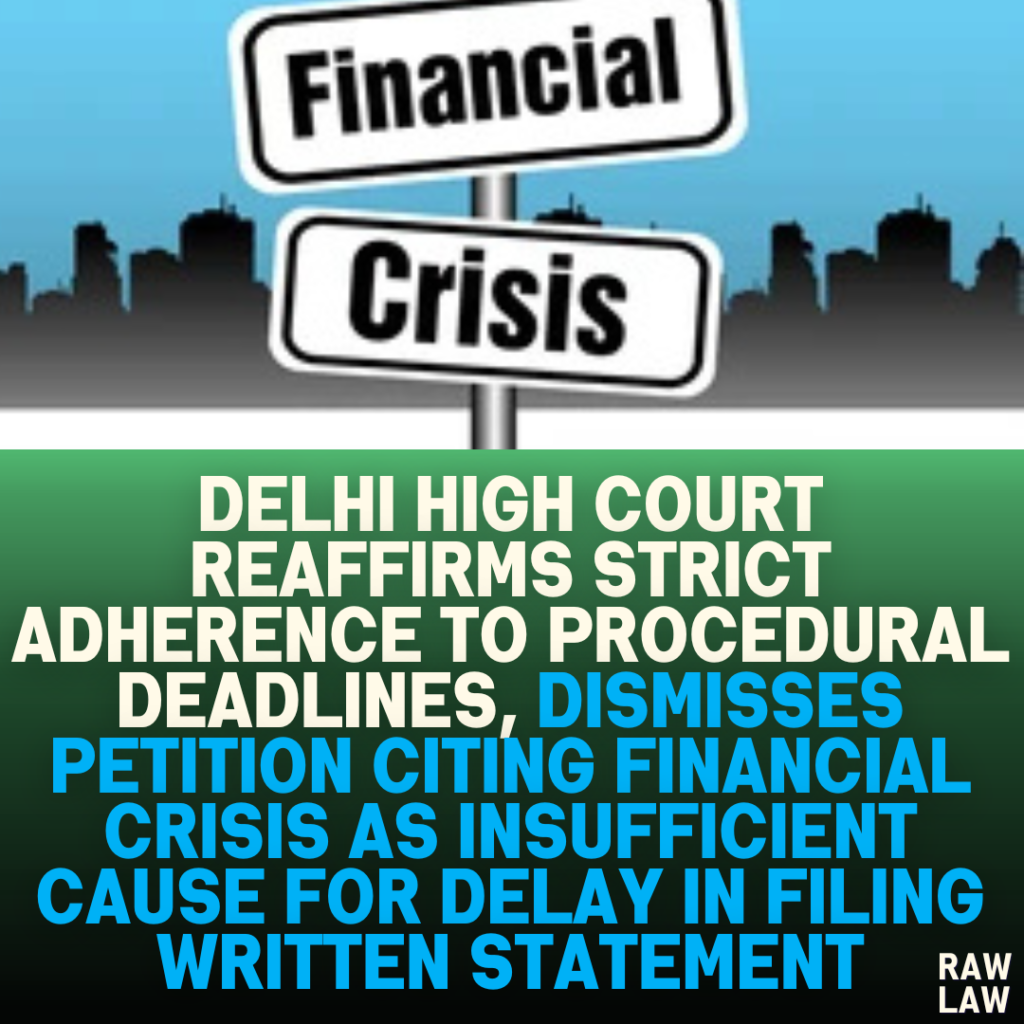Court’s Decision
The Delhi High Court dismissed the petition challenging the trial court’s decision to reject the condonation of delay application filed by the petitioner (defendant No.1). The court upheld the trial court’s order striking off the petitioner’s defense for failure to file a written statement within the prescribed period, emphasizing the duty of defendants to adhere to procedural timelines.
Facts
The petitioner, defendant No.1 in the underlying trial, was served on January 6, 2023, but failed to file a written statement. The petitioner later submitted an application seeking condonation of delay, claiming he was unable to file on time due to a medical condition and financial constraints. The trial court denied this application on January 24, 2024, finding the petitioner’s reasons insufficient, and consequently struck off the petitioner’s defense.
Issues
- Whether the petitioner’s delay in filing the written statement due to medical reasons and financial constraints constituted a “sufficient cause” for condonation under the law.
- Whether the trial court was justified in rejecting the condonation application and striking off the petitioner’s defense.
Petitioner’s Arguments
The petitioner contended that the delay in filing the written statement was unintentional, attributing it to post-surgery recovery and financial difficulties. He argued that these constituted a sufficient cause for condonation of delay under Section 5 of the Limitation Act.
Respondent’s Arguments
The respondent did not present any argument in this petition, as none were recorded or referenced in the judgment.
Analysis of the Law
The court examined Order VIII Rule 1 of the Code of Civil Procedure (CPC), which mandates defendants to submit a written statement within thirty days of receiving summons, extendable to ninety days for recorded reasons. Additionally, it analyzed the scope of Section 5 of the Limitation Act concerning condonation for sufficient cause. The court stressed that procedural obligations must be respected and that defendants are expected to file responses within a time-bound framework.
Precedent Analysis
The judgment did not reference specific case precedents, focusing instead on interpreting the procedural provisions of the CPC and the principles underlying condonation under the Limitation Act.
Court’s Reasoning
The court found the petitioner’s justification for the delay unconvincing, noting that while the petitioner claimed medical and financial reasons, these lacked substantial corroboration. Furthermore, the court observed that the petitioner’s hospital admission predated his service of summons, indicating no immediate link between his medical condition and failure to meet procedural deadlines. The court underscored that financial issues cannot perpetually be deemed a sufficient cause to overlook procedural compliance, stating, “Financial crisis cannot be construed as a sufficient cause, always.”
Conclusion
The High Court dismissed the petition, agreeing with the trial court’s assessment that no sufficient cause existed for condoning the delay. It reaffirmed the necessity for defendants to meet procedural deadlines unless a justifiable and evidenced cause exists.
Implications
The ruling reinforces judicial adherence to procedural timelines in civil litigation, underscoring that delays attributable to general hardships, like financial issues, will not suffice for condonation without robust substantiation. It also clarifies the stringent application of Order VIII Rule 1 and the limited scope of Section 5 of the Limitation Act in civil cases.
